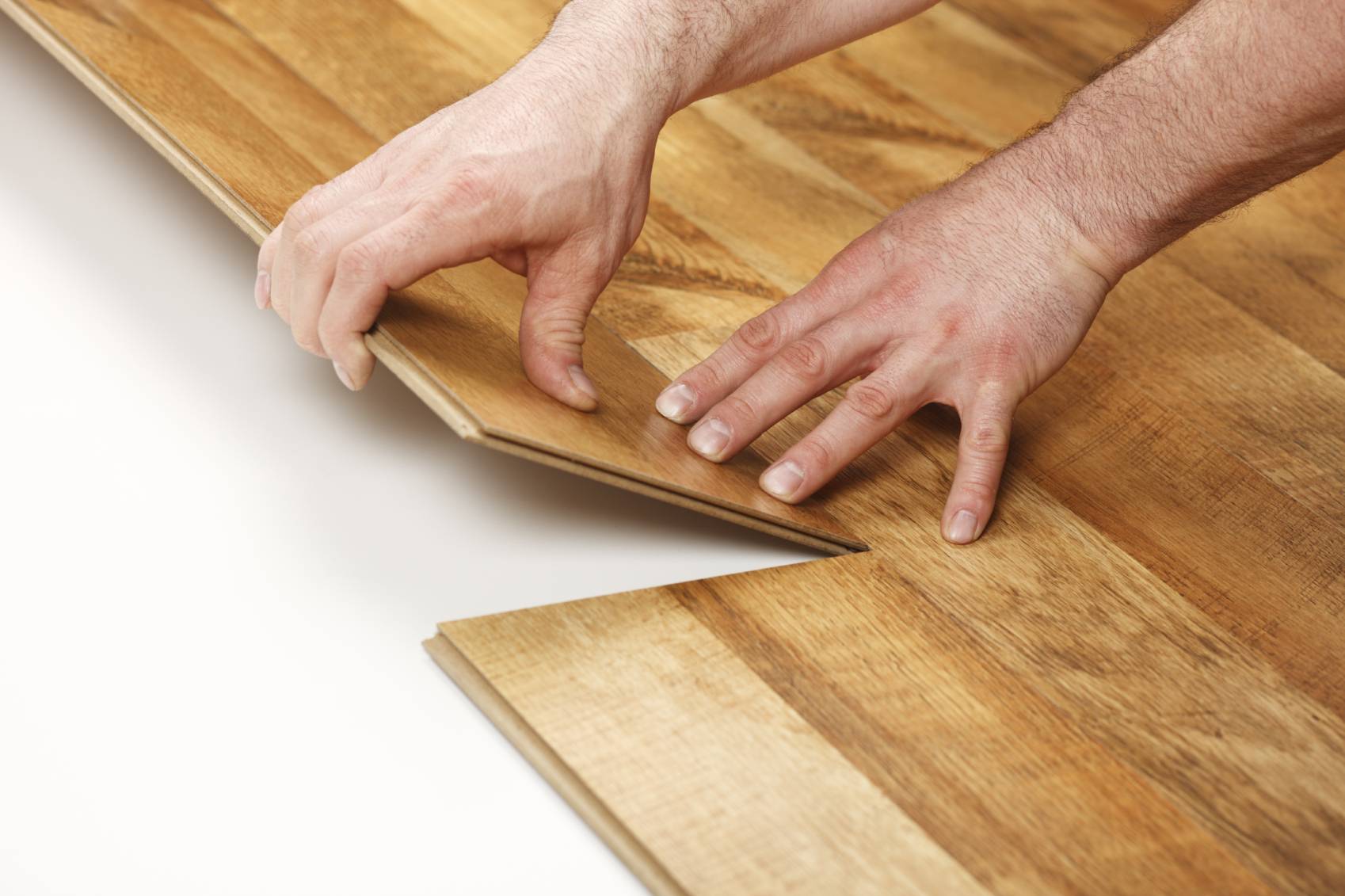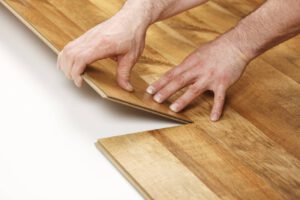Flooring Contractors

Flooring Contractors Dallas TX install, repair, and maintain floor surfaces in homes and commercial buildings. They use standard carpentry hand and power tools and specialty flooring equipment like tile cutters and carpet stretchers.
Some work as independent contractors, while others operate large flooring businesses. In some states, these professionals must obtain a state contractor’s license. This requires meeting minimum requirements like experience, licensing, and insurance coverage.
The flooring that you choose for your home can have a major impact on its appearance. It is important to work with a contractor who has experience installing the type of flooring that you are interested in. You can find out how much experience a contractor has by asking them directly or searching online for reviews. It is also a good idea to ask for referrals from friends or family members who have recently had their floors installed.
If you are looking for a contractor to install new hardwood floors in your home, look for a company that has a wide variety of flooring options. This will allow you to choose the flooring that best fits your style and budget. The company should be able to provide you with samples so that you can see how the flooring will look in your home. They should also be able to give you an estimate of the cost of the project.
A good flooring contractor will be able to provide you with a written estimate that includes the cost of materials and labor. This will help you determine how much the entire project will cost and will help you make an informed decision about which contractor to hire. It is important to remember that price should not be the only factor when selecting a contractor, as quality can vary significantly between companies.
Depending on the location of the business, insurance requirements for flooring contractors may include commercial general liability and workers’ compensation coverage. In addition, some states require licensing, skill or knowledge testing, and a high school diploma or equivalent. Other qualifications for flooring contractors include a background in carpentry, construction, or a related field. Some may also take courses in small-business accounting.
In addition to ensuring that all necessary equipment is in place, a flooring contractor will also need to maintain a safe workplace. This will include containing all flammable materials and having a system in place to contain dust, especially in areas where wood is cut. A flooring contractor will also need to have proper storage for lumber and other flammables as well as adequate aisle space.
Licenses
A flooring contractor must have a license in order to legally provide his or her services. Depending on the state, this may include a home improvement permit or a business license. In addition, some states require a journeyman’s certification. This means that the applicant must have a minimum of three years of experience in the trade and have passed an exam.
Getting a flooring contractor’s license can be difficult, but it is well worth the effort. It will give you the credibility needed to obtain clients and will help ensure that you are a trusted professional. Licensed contractors also place a higher emphasis on customer service and will work with you to make sure that you are satisfied with your new floors.
In New York, a license is required to do flooring work on private residences. This can be obtained through the Department of Consumer Affairs. The process involves attending a 16-hour pre-license course and passing an examination. The state requires that you pay a fee to take the exam and a separate fingerprinting fee. The license is valid for 90 days and must be renewed annually.
There are several different types of flooring licenses, including the CR-8 and the CR-2. A CR-8 flooring contractor can install carpet, resilient sheet goods, wood floors, and floor coverings. The CR-2 license covers the installation of wood floors and other natural-surface materials, including the finishing and repair of those surfaces.
Many states also require a license for flooring contractors who are subcontractors. In some cases, this includes subcontractors who are licensed as general contractors, plumbing contractors, or electrical contractors. Some states have websites where you can verify a contractor’s license and other information.
Another requirement for a flooring contractor is to know how to read construction blueprints. This is important because the blueprints communicate information about how a structure will be built and what materials are needed. This knowledge is necessary to perform a job correctly and safely.
In addition, a flooring contractor must be familiar with the local building codes and regulations. This is particularly important for commercial jobs, which often have stricter requirements. In addition, a contractor must be knowledgeable about the different types of flooring materials available and how they can be installed.
Insurance
Flooring contractors need a well-rounded commercial insurance portfolio to mitigate the financial risk of unforeseen third-party bodily injury, property damage, and litigation. These specialized tradesmen spend their days kneeling on hard surfaces while carrying expensive tools from one worksite to the next, leaving them vulnerable to the financial fallout of an accident or oversight. Thankfully, this is where the right insurance policies come into play.
For example, if a customer suffers a cut due to a piece of sharp equipment left out on the job site, general liability insurance may pay for medical expenses and legal fees. Commercial property insurance is another valuable coverage for flooring contractors that protects inventory, furniture, office equipment, accounts receivable, and more against perils like extreme weather, fire, and theft.
Workers’ compensation is also an important coverage for flooring contractors, especially if they employ full-time or part-time workers. This type of policy helps pay for employee medical bills and a portion of any lost wages if they are injured in the course of business, and most states require it.
Lastly, many flooring contractors frequently travel between job sites in company vehicles. For this reason, securing what’s known as “business auto insurance” is essential for these companies. This policy may help pay for third-party property damage or bodily injury that occurs in the event of a collision, as well as vehicle repair or replacement costs and pollution cleanup.
Building a suitable insurance portfolio for your flooring company can be challenging. Fortunately, there are independent insurance agents who specialize in working with small businesses and can help you identify your risks and recommend the appropriate coverage types to mitigate them. These agents can also shop around on your behalf to find the best available rates for your flooring contractor insurance. This process is free and can save you valuable time and money. To get started, simply locate an independent agent in your area. Then, ask that agent to recommend a few quality providers for your flooring contractor’s insurance. From there, you can compare quotes and choose the plan that’s right for your business.
Warranty
When choosing a flooring contractor, it’s important to look at their warranties. Flooring manufacturers generally offer two kinds of warranties: structural and appearance. Structural warranties cover any manufacturing defects in the floors. However, they don’t typically include coverage of structural issues like cupping, warping, or delamination. These issues can occur due to improper installation or site conditions.
Appearance warranties guarantee the appearance of the floors for a specific period of time, provided that the floors are properly installed and cared for. However, they don’t typically cover natural occurrences such as fade from direct sunlight or scratches caused by pets or high heels.
Manufacturers, suppliers, and flooring contractors would go out of business if they were constantly paying out on claims against their wares. As such, they tend to offer a warranty as an indicator of the quality of their products and work.
A proper warranty will outline exactly how the manufacturer or flooring company intends to compensate the owner in the event of a claim. This will often include a minimum compensation amount as well as a timeline for when this payment will be made.
The type of flooring a homeowner chooses also impacts the length and coverage of their warranties. For example, a carpet manufacturer may only offer a limited lifetime warranty on their products, while hardwood floors can come with warranties that last for life.
Many wood flooring manufacturers will offer a stain and finish warranty for their products. This type of warranty is intended to provide protection from stains, scratches, and other common damage that can happen over the lifespan of a floor.
Some types of wood floors, such as thermoplastics (LVT and LVP), are unstable and can shrink over time. This can cause the floors to curl and lift on the ends or edges. These problems are not covered by a standard manufacturer’s warranty. However, it is possible for a professional installer to install these floors in a way that minimizes these issues. In addition, these problems can sometimes be repaired by regluing the affected areas. If the repairs are not successful, a replacement can be done by a professional flooring contractor.
